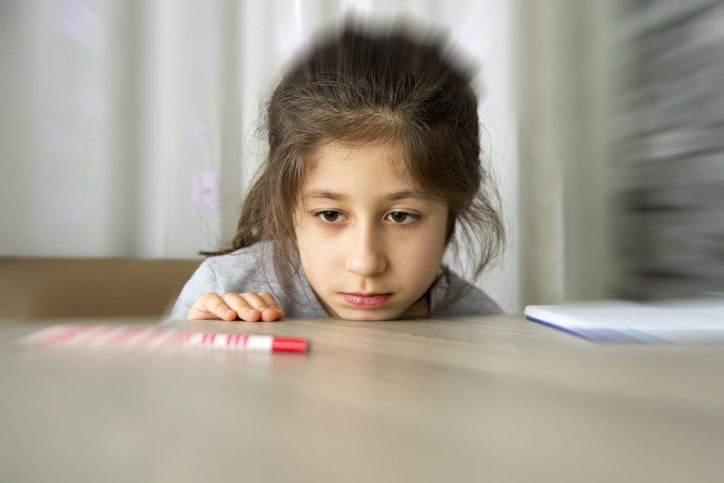If your child has been diagnosed with OCD, it can be difficult to know where to turn for help. There are many different medications that are prescribed for OCD, and it can be hard to decide which one is right for your child. In this blog post, we will discuss the different types of OCD medication for children available, as well as the benefits and side effects of each one.
Contents
When To Consider OCD Medication For Children?
 There is no one answer to this question. Some children with OCD respond well to behavioral therapy alone. For others, the addition of medicine can help decrease symptoms so that behavioral therapy is more effective.
There is no one answer to this question. Some children with OCD respond well to behavioral therapy alone. For others, the addition of medicine can help decrease symptoms so that behavioral therapy is more effective.
If your child’s OCD symptoms are severe and/or include:
- washing your hands, objects, or body
- organizing or aligning objects in a specific way
- counting or repeating specific phrases
- worries about germs, dirt, or illness
- fears of harming yourself or someone else
- fears of saying something offensive or obscene
It is important to consider all treatment options, including medication before making a decision. Because it can be difficult to know what will work best for your child. Therefore, it is important to speak with a mental health professional about all of the options.
Studies have also shown that a combination of behavioral therapy and medication is often the most effective treatment for OCD. And while there are many different types of OCD medication available, not all of them are FDA-approved for use in children.
Types of OCD medication for children
Many different types of medication can be used to treat OCD. The most common type of medication prescribed for OCD is a class of drugs called selective serotonin reuptake inhibitors (SSRIs) or Antidepressants. Other types of medication that can be used include antipsychotics, anti-anxiety medications, and beta blockers. Let’s discuss each type in detail to clear our understanding:
SSRIs (Selective Serotonin Reuptake Inhibitors)
They work by increasing levels of serotonin in the brain, which helps to reduce anxiety and improve mood, which can also make people more receptive to treatments like CBT. Common anti-depressants include:
- Fluvoxamine (Luvox)
- Fluoxetine (Prozac)
- Paroxetine (Paxil)
- Sertraline (Zoloft)
Antipsychotics
Second-generation antipsychotics affect serotonin and dopamine transmitters. It offers a reliable solution when combined with SSRIs and has lesser side effects. Common antipsychotics include:
Beta-blockers
Beta-blockers control the body’s fight or flight response and are commonly used in the treatment of high blood pressure. Propranolol and atenolol are common beta-blockers that are also used in treating anxiety.
In a nutshell, OCD medications work by helping to balance the chemicals in the brain. These chemicals are responsible for mood, anxiety, and other mental health conditions. By helping to balance them, OCD medications can help reduce the symptoms of OCD.
How Long Does It Take For Medication To Work?
It can take several weeks for OCD medication to work. The recommended duration of treatment is at least 12 weeks. Medication is often continued for much longer, even indefinitely, in order to maintain symptom control. Moreover, some people may experience only a partial response to medication. Studies have shown that improvement in childhood OCD can continue for at least a year after starting medication.
Benefits Of OCD Medication In Children

Even though parents may be hesitant to start medication. But, OCD medication for children has proven to halt the symptoms and provide initial relief. Some of the benefits of OCD medication in children include:
Improvement In OCD Symptoms
When OCD stops progressing it leads to an overall improvement in quality of life and decreases anxiety and worry. It also reduces the emotional and mental burden on the child. Giving them the freedom to be curious and take interest in other important things.
Increased Ability To Participate In Therapy
Being collaborative and the client’s ability to feel safe in the therapy accelerates the process of recovery. Also, the client is better able to understand and implement what is being learned in therapy.
Enhanced Participation In School And Co-curricular Activities
Actively being involved and interacting in the classroom makes the child more self-sufficient and confident. Studies have shown that participation in co-curricular activities helps in the emotional, social, and overall personality development of a child.
Improved Self-esteem
A high sense of self-esteem gives a child a more positive outlook on life, increasing their ability to have healthy relationships with others. Moreover, it also leads to academic success and high motivation to take action.
Cultivates Interest In Social Activities
Communicating and expressing our interests in our community, develops a sense of belongingness and acceptance. Being socially active paves a path for better emotional well-being and mental health.
Moreover, the benefits of OCD medication in children are vast and cannot be underestimated.
What Are The Side Effects?
 Before starting medication it is crucial to weigh the risks and benefits of medication. Potential risks associated with OCD medication in children include:
Before starting medication it is crucial to weigh the risks and benefits of medication. Potential risks associated with OCD medication in children include:
- Increased anxiety or agitation
- Difficulty sleeping
- Loss of appetite
- Headaches or stomachaches
- Dizziness or lightheadedness
Severe side effects of OCD medications are rare, but can include:
- Hallucinations
- Seizures
- Kidney problems
While these side effects are generally mild and well tolerated by most children, it’s important to discuss any concerns with your child’s doctor. If you notice any of these side effects, or if your child is experiencing excessive worry or distress, be sure to contact your child’s doctor immediately. OCD medication can be an effective treatment for many children, but it’s important to work closely with a mental health professional to ensure that it’s the right treatment for your child.
Can Medication “Cure” OCD In Children?
Unfortunately, OCD cannot be cured. Medication can help lessen the symptoms of OCD, but it is not a cure. For some people, medication may be the only treatment necessary to manage their OCD. For others, a combination of medication and therapy may be necessary for more effective treatment.
Children do not need to take OCD medications forever. But, doctors suggest treatment be continued for at least a year after symptoms fade away. Because if a person stops taking the medication, there are chances that the symptoms might come back again within a few weeks or months.
Conclusion
OCD medication for children can be tricky. It’s important to monitor side effects and work with a qualified professional to ensure the best possible outcome for your child. Many different types of medications are used to treat OCD in children, and each child responds differently to each type. Medications should always be prescribed by a qualified mental health professional, such as a psychiatrist, who is experienced in treating OCD.
If you think your child may be suffering from OCD, don’t hesitate to reach out to a mental health professional for help. Early intervention is key to successful treatment. With the right support, children with OCD can learn to manage their symptoms and live happy and healthy lives.
You can also contact Therapy Mantra for more information and assistance. We have a team of professional therapists who can provide you with the support and guidance your child needs to recover from this condition. Contact us today to learn more about our services. You can also book an online therapy or download our free OCD treatment app on Android or iOS.


